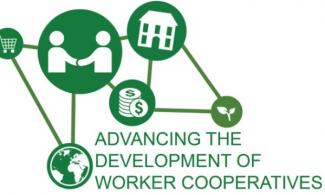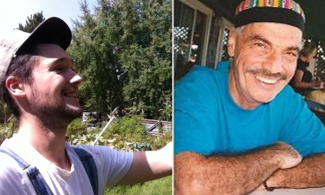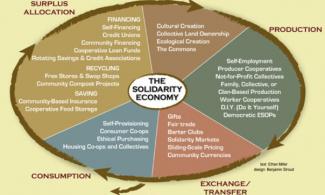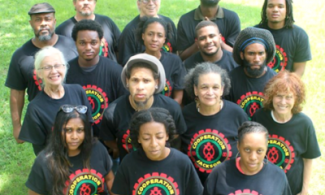The future of humans and Planet Earth depend on replacing the "greed-driven" economic system of Wall Street with the "life-serving" system of Main Street.
That was the message that David Korten, author Agenda for a New Economy, and co-founder of Yes! magazine, brought to the 58th annual conference of the Association of Cooperative Educators in Cleveland on Wednesday.
Korten was one of the reasons that I wanted to come to this conference. The other was to tour the Evergreen Cooperative Laundry. Thanks to the Ralph Morris Foundation, I was able to attend my first ACE conference.
The first day of the conference, held at the Marriott in Public Square, included Korten's main address, a presentation on Cleveland's Evergreen Cooperative Laundry, workshop discussion on where co-op development generally was headed, and tours of Evergreen Laundry and Ohio Cooperative Solar.
In an 8.a.m. address to about 100 people who are part of cooperatives organizations in the U.S. and Canada, Korten said that a substantial majority of people in the U.S. are part of cooperatives organizations "credit unions, food cooperatives, worker cooperatives, utility cooperatives, etc." while only 21 percent of households own public stock.
"Cooperatives have enormous political economic clout," he said. "The economic power of cooperation is one of the most underreported stories of our time."
Yet we do not know our power because of deliberate mass brainwashing.
Korten said we have been indoctrinated with bogus economic theory that tells us that:
1. people are inherently greedy, competitive and violent
2. we believe the illusion that we live in a world with unlimited resources
3. money is wealth and that making money is our highest human calling.
"Each is false and morally bankrupt." Korten said.
He exhorted the audience to "declare your independence from Wall Street."
But before providing a strategy to do so, Korten energized the group by asking the audience to stand up sing and dance to the song with the refrain "No Wall is Too Tall" by Raffi. http://www.raffinews.com/ He then led them in dancing to the song that encouraged the audience of mostly educators to understand the power of a small active and educated group.
After that musical "massage," Korten said we must create a new economic reality, change the rule of the game to favor people and life, and change the culture's defining stories.
"Change starts with an idea and spreads," he said. "The Civil rights movement changed the story on race.The Women's Movements changed the story on gender," he said.
Later on the trolley ride over to Evergreen, Korten said "money is only a number." We give it in power by the energy that we put into it.
"Money is the ultimate vehicle of enslavement--the vehicle of modern enslavement," he said.
(Koren's entire speech is below.)
Bill Patrie of Common Enterprise Development Corporation of Mandan, N.D., started the day's session with an invocation to the Divine to "bond us in the true spirit of solidarity and cooperation."
I was struck in particular by one line of the invocation.
"We promise to work for happiness," he said. What an inspiring thought.
A workshop on Evergreen Cooperative Laundry, followed Korten, but I will write more about that later.
Lou Hammond Ketilson, Director of the Centre for the Study of Co-operatives at the University of Saskatchewan, led the audience in breakout discussions of eight groups of three questions:
1. What are the priority co-op development issues/needs in the coming two years?
2. How well are those needs understood? What are the gaps in terms of understanding? Where do the gaps exist?
3. What strategies are needed to close the gap? What educational resources are needed?
The United Nations' designation of 2012 as the Year of the Cooperative came up often as a reason to really ramp up education about the value of cooperatives. Some common suggestions: develop curricula for schools and colleges, find ways to talk about cooperatives to inspire people, and finding celebrity spokespeople who can really get the message out.
I was in Group Five which proposed that co-ops contribute to a 2012 fund help develop a movie on cooperatives for mass education, The Co-op Storytelling and History Project to help make the case for cooperatives and developing tool kits such as for succession planning.
Participants also suggested that representatives from major co-op groups such as ACE, NCBA and others form a group to figure out a way to make these things happens.
Tomorrow I'll write more about the tours and what happens on the second day.





Add new comment